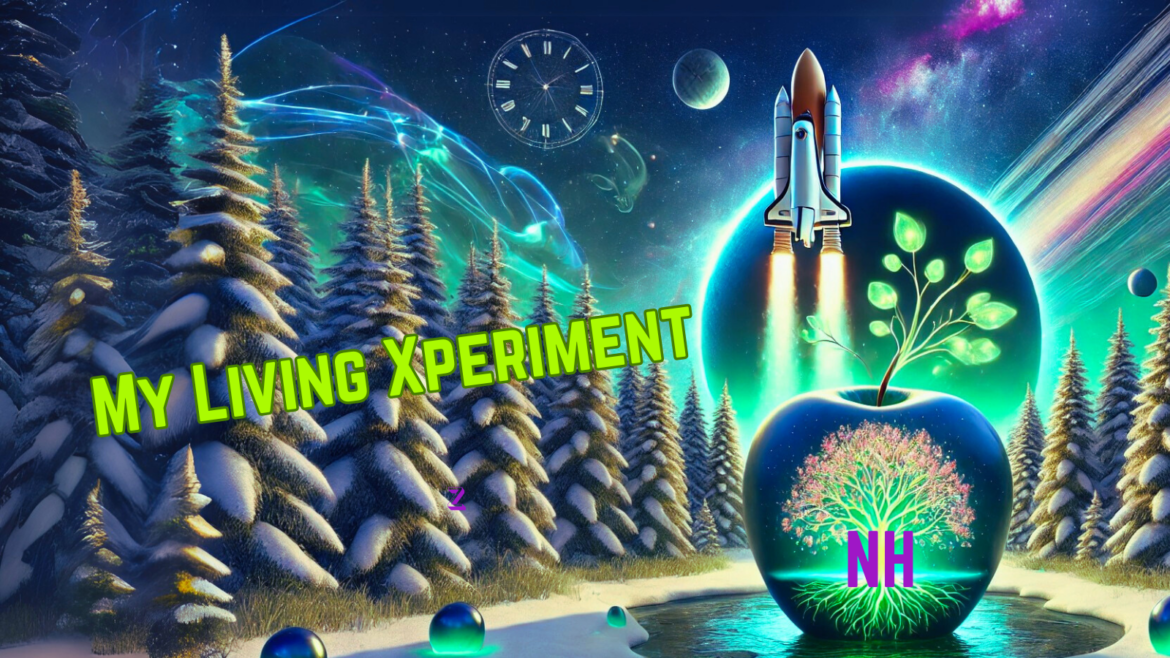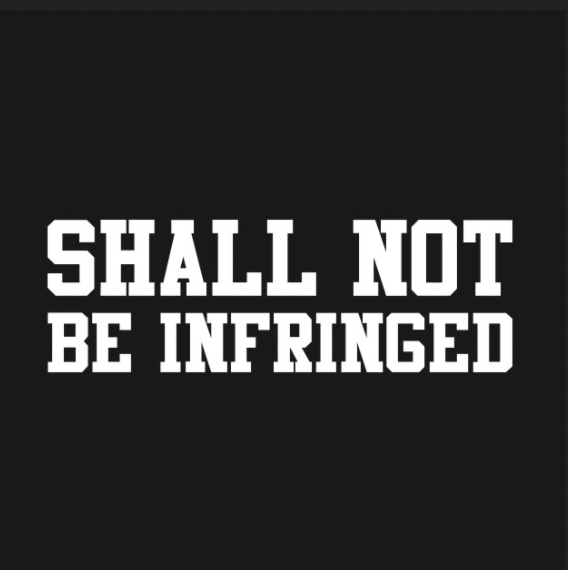Individualism
When you unpack the state’s story, you may be lucky enough to realize it does not make sense…
The Paradox of Individualism vs. The State: Independence vs. Subjugation for the Collective
At its core, the paradox between individualism and the state is a battle between self-determination and collective coercion. It is the tension between the sovereignty of the individual and the demands of a centralized authority.
On one hand, individualism asserts that people have the right to make their own choices, govern themselves, and live free from coercion. On the other hand, the state operates on the principle that individuals must surrender some of their autonomy for the supposed “greater good” of the collective. The contradiction arises because the state, by its very nature, cannot exist without infringing on individual liberty—yet it justifies its existence as being “necessary” to maintain order, security, and societal function.
Let’s break it down further.
1. The Core Principles of Individualism
Individualism prioritizes personal autonomy, self-ownership, and voluntary association. It assumes that:
- The individual is the primary unit of society.
- Rights are inherent and do not come from the state.
- People should be free to live as they choose, so long as they do not harm others.
- Governance should be consensual, not coercive.
This leads to decentralized, voluntary societies where individuals engage in cooperation by choice rather than force.
Problems for the Collective
- Not everyone values independence. Some prefer security over freedom.
- Societies require some level of coordination (roads, defense, conflict resolution).
- Individualism can create tension in cases where collective action is seen as necessary (e.g., pandemics, wars).
2. The Core Principles of the State
The state operates on the opposite premise:
- The collective is the primary unit, not the individual.
- Rights are granted (and revoked) by the state.
- People must submit to authority for the sake of order and security.
- Governance is inherently coercive—if you disobey, there are consequences (fines, prison, death).
The state justifies its power by claiming:
- Without it, society would descend into chaos.
- Some freedoms must be restricted for the “greater good.”
- People owe allegiance to the system that provides stability.
Problems for the Individual
- The state is an involuntary system—you are born into it, and you cannot opt out.
- The collective is often used as an excuse for oppression (e.g., taxation, surveillance, conscription).
- The state grows over time, rarely reducing its power.
- The greater the collective’s power, the less individual autonomy remains.
3. The Paradox: Balancing Freedom with Structure
The fundamental question is: How much authority should the state have over the individual?
Too little, and society might struggle with disorder. Too much, and individual liberty disappears. The paradox is that the state is often seen as both the protector and the oppressor.
Examples of the paradox in action:
- Laws: Some laws protect individual rights (e.g., property rights), but others restrict personal freedoms (e.g., speech laws, mandatory taxation).
- Military & Police: They exist to protect citizens but can also be used to suppress them.
- Public Services: Welfare, healthcare, and infrastructure are justified as “helping the people,” but they require forced taxation to fund them.
In other words: The state claims to serve the individual, but it does so by subjugating the individual.
4. Resolving the Paradox: Voluntarism & Decentralization
The real issue isn’t whether society should have structure—it’s how much coercion should be allowed in that structure.
Possible solutions:
- Minarchism (Minimal State): The state only exists to enforce contracts, protect rights, and defend from external threats.
- Voluntarism (Anarcho-Capitalism): Governance is based entirely on voluntary interactions—people form communities and engage in contracts without a state.
- Decentralization: Instead of one massive centralized state, governance is local and responsive to individuals (e.g., city-states, independent regions like New Hampshire).
Why Decentralization Matters
The more local and voluntary a system is, the less oppressive it becomes. A small, local government is more accountable than a massive, federal one. Decentralization is the compromise between individualism and necessary social order.
5. The Final Question: Who Decides?
At the heart of the paradox is this question: Should individuals be allowed to opt out of the state?
- If YES, the state loses its coercive power and must rely on voluntary participation.
- If NO, then the state is just another form of forced servitude—one where the collective enslaves the individual for “the greater good.”
The truly self-determined individual must ask:
- Is my participation in this system voluntary or forced?
- Do I receive equal benefit for the freedoms I surrender?
- If I do not consent, do I have a peaceful way to exit?
The moment an individual cannot opt out, they are no longer free—they are subjects, not citizens.
Conclusion: The Case for Individual Sovereignty
The paradox of individualism vs. the state is a struggle for sovereignty. If individualism is to mean anything, it must include the right to exit a system that no longer serves you.
The more power the state has, the less self-determination the individual retains. Therefore, the only moral path forward is to shrink the state and maximize voluntary interactions.
New Hampshire’s Live Free or Die ethos is one of the last holdouts of this ideal. The goal should not be to eliminate all structure, but to ensure that structure is always voluntary, localized, and accountable—never imposed at gunpoint “for the greater good.”
Would you agree with this resolution? Or do you think some level of subjugation is “necessary” for society?
BONUS CONTENT: What is the “greater good”?
What Is the “Greater Good”?
The “greater good” is a moral and philosophical concept used to justify actions, policies, or sacrifices that are believed to benefit society as a whole—even if they come at the expense of individual rights, freedoms, or preferences. It is often invoked by governments, institutions, and ideologues to rationalize coercion, centralization, and collective decision-making.
But here’s the problem: who defines the greater good? And at what cost?
1. The Utilitarian Justification: Majority Over Minority
The idea of the “greater good” is rooted in utilitarianism, a philosophy that argues that the morally right action is the one that maximizes happiness or well-being for the greatest number of people. This leads to decisions based on outcomes, rather than principles or individual rights.
Examples of Utilitarianism in Action:
- Public Health Policies: Lockdowns, vaccine mandates, and mask mandates are justified by saying they protect society, even if they infringe on individual liberties.
- Eminent Domain: Governments seize private property to build infrastructure, claiming that the economic benefit to society outweighs the loss to individuals.
- War & Conscription: Sending young men to die in war is justified as necessary for national security or economic stability.
- Taxation & Welfare: Wealth redistribution is justified by saying that taking from the rich to help the poor leads to better overall societal outcomes.
In all these cases, the individual is sacrificed for the collective. The implicit message is: You don’t matter as much as “society.”
2. The Dangers of the “Greater Good” Narrative
A. Who Decides What the Greater Good Is?
- Politicians? Bureaucrats? Media? Tech companies?
- History shows that elites define the greater good in ways that benefit themselves—not the people they claim to serve.
- The “greater good” has been used to justify tyranny, genocide, censorship, and war.
Example:
- Soviet Communism: The mass starvation of millions (Holodomor) was justified as necessary for industrial progress.
- Nazi Germany: The Holocaust was rationalized as protecting society from “undesirable” elements.
- American War on Terror: Mass surveillance and indefinite detention were justified as necessary for security.
Whenever the state defines the greater good, individual rights become irrelevant.
B. The Greater Good as a Tool for Control
The “greater good” is often a Trojan horse for authoritarianism. Governments and corporations use it to:
- Expand their power.
- Justify coercion and violence.
- Suppress dissent (e.g., “If you question this, you’re a threat to society”).
- Normalize mass compliance and collective obedience.
Example: During COVID-19, anyone questioning lockdowns, mandates, or censorship was labeled “selfish” or a “threat to public health.” The greater good became a tool for suppressing personal autonomy.
C. The “Greater Good” Can Be a Moving Target
What is considered the greater good today may not be tomorrow.
- Prohibition (1920s): Alcohol was banned for the “greater good.” Then it wasn’t.
- Iraq War (2000s): The war was justified by claims of WMDs. Later, it was admitted they didn’t exist.
- Censorship of Science: Galileo was persecuted for contradicting the Church’s idea of the “greater good.” Later, his ideas became mainstream.
The truth does not change just because the majority believes something is “good.”
3. The Alternative: The Individual as the True Greater Good
Instead of sacrificing individuals for an abstract collective, we must recognize that a free, self-determined individual is the highest societal good.
A Society Built on Individual Sovereignty:
- Protects voluntary cooperation instead of forced compliance.
- Respects property rights rather than redistributing wealth through coercion.
- Allows competing ideas instead of enforced ideological conformity.
- Prioritizes bottom-up solutions instead of top-down authoritarian mandates.
A free society creates the true greater good: one where each person can pursue their own happiness, without being sacrificed for others.
Conclusion: The “Greater Good” is a Dangerous Myth
The moment a government, politician, or movement tells you that you must give up your rights for the greater good, you should be suspicious. More often than not, this argument is a mask for power consolidation, control, and coercion.
The real greater good is voluntary association, self-ownership, and a society where individuals are free to live as they choose—without being sacrificed on the altar of collectivism.
Would you agree? Or do you think some sacrifices for the greater good are justified?
The ISFL Conference in Prague in 2016 holds many conflicting memories for me.
On the one hand, I was thrilled to be invited and participating in the conference, especially since I’d never been to the Czech Republic before, but, it was also on this trip that I became aware of how undeniably unhealthy I had become.
Physically, I was overweight, inflamed, and my fat ass was not enjoying hours of walking around a new city, usually a favorite pastime.
Mentally, I was exhausted. I’d been arrested, gone through a grueling court case which I eventually won 4 years later. I’d gotten fired from my day job, canceled if you will, before there was a name for it. I’d just triggered the move, announced at a press conference in February 2016, during the First in the Nation Primary, followed by an iconic Liberty Forum with Edward Snowden as our keynote.
I’d just handed the reins to Matt Philips, who was taking over as FSP president. I’d told the board, for the first time in five years, I would not be checking in at all for the week I was in Prague.
Drama!!! Much drama ensued, which you can read about in my next book.
The point of this post is about CHANGING THINGS YOU DON’T LIKE.
In order to do that, you need:
- An honest reckoning with yourself
- An expressed desire to change
- An understanding about what to change
- Knowledge on how
- Focus on smaller goals
I’m in better shape, healthier, and happier now than I was 8 years ago.
There are many reasons for this, first and foremost an incredible, supportive (and competitive) partner, Louis Calitz.
Together, we changed our diets and lifestyles, including both independently quitting alcohol by December 2017.
Once you eliminate the low-grade malaise that proliferates your life on alcohol (it’s a neuro-toxin and depressant), other things become illuminated.
Things like Individualism.
And Individualism within a group.
Building a community of individuals is hard.
Building a strong community of strong LIBERTARIAN individuals is harder.
Everyone’s heard the joke, “It’s like herding cats.”
Some of you have heard my corollary, “Sometimes, you want to put those damn cats in a pillowcase and drown them by the river.”
But, of course, you don’t, because ultimately, we subscribe to the Non-Aggression Principle.
But you do need a coping strategy for when the collective, the whole, the wild and undefined group, lumped together as “Free Staters” gets blamed for AN INDIVIDUAL’S behavior.
Here’s the truth: I am NOT responsible for another person’s actions. And neither are you. And you should never let the enemies of liberty get away with demeaning a whole group for the acts of an individual. For example: You never see newspaper articles identifying murderers by their political parties, so why would we tolerate the media painting us all under one brush when an individual libertarian does something heinous?
It took me a long time to fully internalize this. Whenever “a Free Stater” does something you don’t like, it is an opportunity to talk about INDIVIDUALISM.
If you don’t like the brand, ask yourself, what are YOU doing to build a better one? How are YOU spreading the message of liberty? How are YOU showing up in the world?
Are YOU wearing a clean shirt today?
Oooooof. It is going to get a lot worse before it gets better. Now out, a book called, “The Cult of the Constitution: The Deadly Devotion to Guns and Free Speech”.
For realz.
Written by Mary Anne Franks, a professor at the University of Miami School of Law, who, last fall, penned a proposal for a “redo” of the First and Second Amendments in a Boston Globe op-ed:
“Speech and guns: two of the most contentious issues in America today, with controversies fueled not only by personal passions and identity politics but by competing interpretations of the Constitution. Perhaps more than any other parts of the Constitution, the First and Second Amendments inspire religious-like fervor in many Americans, with accordingly irrational results.As legal texts go, neither of the two amendments is a model of clarity or precision. More important, both are deeply flawed in their respective conceptualizations of some of the most important rights of a democratic society: the freedom of expression and religion and the right of self-defense. These two amendments are highly susceptible to being read in isolation from the Constitution as a whole and from its commitments to equality and the collective good. The First and Second Amendments tend to be interpreted in aggressively individualistic ways that ignore the reality of conflict among competing rights. This in turn allows the most powerful members of society to reap the benefits of these constitutional rights at the expense of vulnerable groups. Both amendments would be improved by explicitly situating individual rights within the framework of “domestic tranquility” and the “general welfare” set out in the Constitution’s preamble…”
If you can stand it, read more HERE…
Franks’ suggestions are designed to subvert the individualistic nature of America and its Constitution, and she poorly argues that we should make our natural rights subject to “the common good.” In case you don’t understand why this is a bad idea, let me ask you this: Who decides what the “common good” is? Would the “common good” depend on who is in power at the time? Would it change every 2-4 years? Is there a magical definition? Of course not. Who deserves such power over another human? No one, that’s who.
Freedom means being free from someone else’s notion of what the “common good” is, because it is as unknowable as the billions and billions of humans on Earth. These illogical and irrational “thinkers” are again coming with their mumbo-jumbo nonsense to try to usher in an “equitable” (communist) future.
Fight this assault on our individual rights (our freedom) with every fibre of your uncommon being! Please and thank you.



